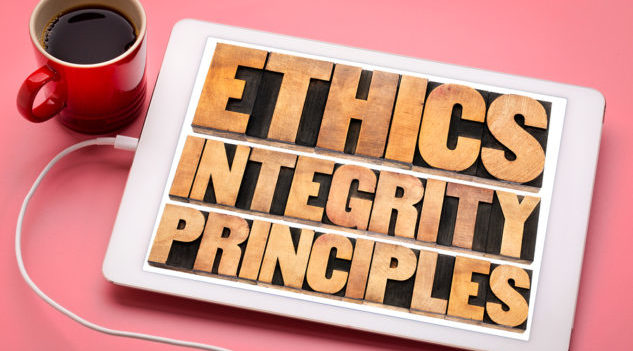We have lived, too often accepting, with business practices of unethical behaviours from many companies across industries for years. Media attention to executives acting with questionable ethics and found out and in the limelight only seem to need to say “I’m sorry” and all unethical actions committed is forgiven.
Recently the Computer Daily News noted comments from small businesses on unethical conduct. The latest Small Business Report issued by the ACCC says that, while reports of potential misconduct were down slightly in the last months of 2020, it still received about 2000 total complaints from small business.
About one-third of these involved claims of misleading conduct and false representations of other business.
In Australia, there are many examples of companies that have demonstrated poor ethics which businesses have observed. This allows a company to consider their approach to maintaining ethics and practising such to ensure that they do not fall into the “profit at any cost” trap which harbors or allows unethical behaviour. A few examples include the Financial Industry practices which drew attention and subsequent Royal Commission into Banking practices or Crown Casino which uncovered questionable business practices to hold a license in Melbourne and Perth. Australia Post was also an example, unfortunately, of an executive loss of ethical practices when actions were uncovered from “watch-gate”.
Recently, we have seen global examples, from the US elections and behaviours of the outgoing President leading to his second impeachment. There are many other examples in many other global companies that have uncovered and taken action to eliminate unethical practices in their companies.
Small business now has a fiduciary responsibility to expect consistent ethical behaviour from every employee, partner and associate in future business activities. This suggests that each company owner or leader conducts themselves in a manner of the highest level of ethical actions, which will become the critical success factor for business growth and success. Customers want to do business with favourable companies who conduct themselves in practice with ethics and value.
The emphasis is for small business to develop a conscious approach to ethics in building their individual company cultures. Now is the opportunity for business, even not for profit organisations, to encourage others doing business together to address the ethics question which will attract customers who want to deal with highly ethical companies.
Ethics in business has risen as a significant issue due to both human issues that are focused regularly on, such as:
- gender equality
- sexual bias
- corruption of officials in government
- questionable conduct in levels of business management
- cultural traditions.
And to environmental issues, primarily:
- global warming
- deforestation
- waste disposal
- carbon emissions.
Delivering focused activities which raise awareness of the “why” question of ethics in business is key. Investment in business planning which includes clear policies that deal with any form of discrimination or unethical activities is unacceptable must be reviewed with regularity.
The work-from-home model will shift the method of keeping informed of employee behaviours with peers or customers and require meeting with regularity to discuss and review and confirm standards and practices are at the highest level of ethical performance.
Practising and believing in ethical practices may not win every business circumstance to opportunity, but by following this strategy to success will always protect and secure a place for the future in business.
Jay Johnson, Director, Pelorus International












